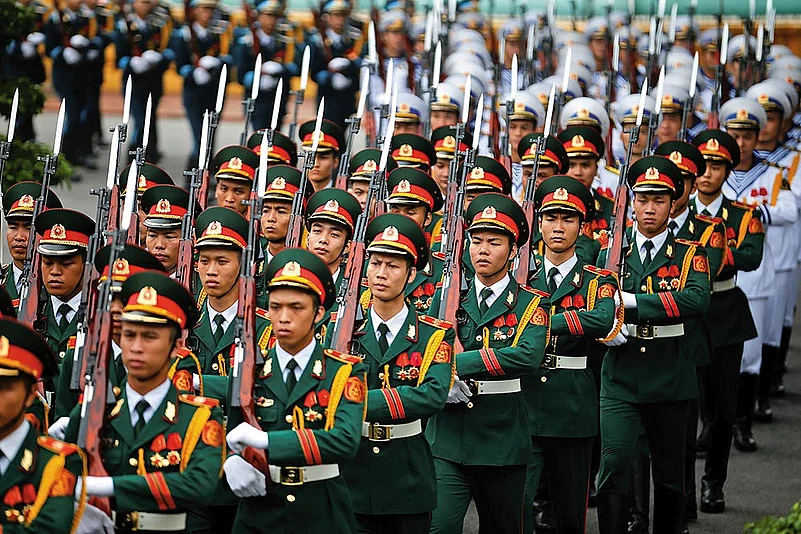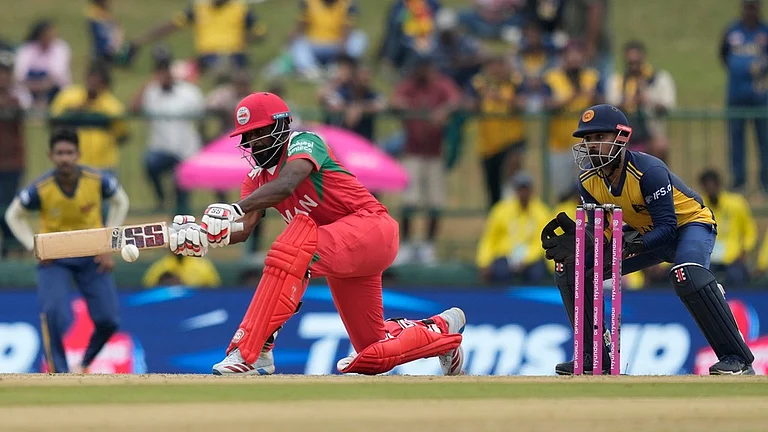‘Khaki capital’ is an innovative phrase that relates to the self-financing index of the military and the degree to which the uniformed fraternity in Southeast Asia have become corporate entrepreneurs. The editors, based in the Naresuan University in Phitsanulok, Thailand, are to be commended for producing a brave and pioneering volume. It merits recall that the dangers of allowing the military to overwhelm the economic and industrial domains were first outlined, post World War II, by US President Eisenhower, when he cautioned the US about the corrosive nature of an unbridled military-industrial complex.
Khaki Capital seeks to examine a well-known but little studied phenomenon in the region—the special status and critical leverages the military has accorded unto itself in Southeast Asia during the uneasy transition to civilian rule.
The central argument is familiar—that the greater the control “which militaries have over economic resources, the more insulated they tend to be from civilian political control”. And the extrapolation is that as the military acquires dominance over its own wealth and is able to firewall and enhance it significantly—this pattern “becomes the inertia for sustaining and/or expanding the military’s economic ‘empire’ (and) any reverse course of it could only be regarded by them (military) as unacceptable”.
Chambers and Waitoolkiat caution that while some Southeast Asian militaries may become “more politically and economically fastened under civilian control”, others left uncorrected could become “more increasingly unfettered as free-wheeling, predatory extractors of rent”.
In its most normative democratic formulation, the state exercises monopoly over the use of macro force and related violence through the institution of the military but the latter must remain under elected civilian control. However, in many post-colonial states, the military’s role tends to be overbearing for reasons of historical inheritance and the specific strategic culture. And where the khaki capital syndrome has crossed a certain median and the military has consolidated its position in relation to the edifice of state, the resultant template weakens the normative tenet of civilian supremacy in a democratic dispensation.
In nine lucid chapters, the book provides a comprehensive overview of the current state of play apropos ‘khaki capital’ in Thailand, Myanmar, Vietnam, Cambodia, Laos, Philippines and Indonesia. The editors provide the conceptual underpinning in the opening chapter, theorising the political economy of security, as also the comparative conclusion in the final chapter. Individual authors detail the experience of the countries listed and I found these chapters to be illuminating for their luminous granularity and nuanced interpretation.
For example, author Marco Bunte notes that even after the nascent transition to civilian political governance, the Myanmarese “military has taken over the role of guardian of the political order”, while concurrently deepening its involvement in the national economy through two military conglomerates. The comparison with Indonesia here is axiomatic and the detailed review of the Indonesian experience is very rewarding.
The most populous nation in SE Asia, Indonesia has had a chequered history vis-a-vis civil-military relations. Like many of its neighbours, the Indonesian military—TNI (Tentara Masional Indonesia)—had a pivotal role in the liberation from colonial rule and continued to remain central in the three-decade rule of Suharto that ended in 1998. As Jun Honna points out, “The stabilisation of post-authoritarian civil-military relations has been achieved at the cost of allowing the military to maintain its institutional prerogatives, most notably economic interests generated by khaki capitalism.”
The tenacious hold of the Southeast Asian military in the political economy of the region opens up certain policy issues for the region’s principal interlocutors, including India. If New Delhi’s Look East, now Act East, policy is to acquire appropriate traction, then the role of the military in the politics and economic activities of ASEAN would have to be accommodated in a more innovative manner by the Indian establishment.
Two other aspects merit notice from an Indian perspective. First, the academic rigour of this volume ought to serve as a benchmark for the Indian scholar-analyst; and secondly, the ‘discovery’ (for this reviewer at least) of the depth of research that the Nordic Institute of Asian Studies has to its credit. Partly supported by the five Nordic nations, NIAS, since 1969, has produced over 200 titles. Rich fare for Indian academia and think-tanks.
























